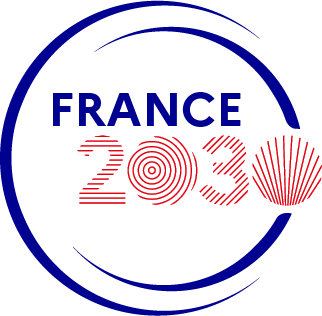

 |
Maryse LEBRUN |
|
|
Information |
||
| Laboratory of Pathogen Host Interactions | ||
| Cell biology of apicomplexan parasites | ||
| Montpellier | ||
| 0000-0002-0962-0156 | ||
| This email address is being protected from spambots. You need JavaScript enabled to view it. | ||
| https://cutt.ly/sw2i2ZC | ||
| @Lebrun43782700 | ||
|
Scientific interests and projects |
||
|
We are interested in the cellular and molecular mechanisms that enable apicomplexan parasites to infect and develop inside their host. The phylum Apicomplexa comprises single-celled eukaryotic parasites. They are important pathogens of humans and domestic animals. It includes Plasmodium spp. the causative agent of malaria, responsible for almost half million human deaths per year. It also includes Toxoplasma, a prominent cause of human congenital infections, and Cryptosporidium, a leading cause of severe diarrhea and mortality in infants. No vaccine currently exists against these parasites. The objectives of our team are to decipher cellular and molecular features related to two essential parasitic functions: host cell invasion and intracellular replication, with the aim of identifying novel therapeutic strategies. Our research is mainly focused on T. gondii, which is a relevant model for many features conserved throughout the phylum. We then extend our important discoveries to the malaria parasite. We use a broad array of cell biological and biochemical approaches, as well as cutting-edge molecular genetics and genome editing. The M. Lebrun group explores i) the structure/function of proteins constituting the moving junction, a key structure formed during invasion of the host cell, ii) the mechanisms that trigger rhoptry exocytosis upon binding of the parasite to the host cell, iii) the fusion machinery of the rhoptry with the parasite plasma membrane, and iv) how rhoptry content is introduced in the host. The group of S. Besteiro focuses on the contribution of an endosymbiotic organelle to the metabolism and survival of T. gondii in the context of both the acute and chronic phases of toxoplasmosis. The group of M. Lamarque is interested in the functional characterization of selected P. falciparum phosphatases related to the invasion and egress mechanisms. |
||
|
Top 5 publications of the last 5 years |
||
|
1. Suarez C, Lentini G, Ramaswamy R, Maynadier M, Aquilini E, Berry-Sterkers L, Cipriano M, Chen AL, Bradley P, Striepen B, Boulanger MJ, Lebrun M. A lipid-binding protein mediates rhoptry discharge and invasion in Plasmodium falciparum and Toxoplasma gondii parasites. (2019). Nature Communications. 10(1):4041. doi: 10.1038/s41467-019-11979-z 2. Guérin A, Corrales RM, Parker ML, Lamarque MH, Jacot D, El Hajj H, Soldati-Favre D, Boulanger MJ, Lebrun M. Efficient invasion by Toxoplasma depends on the subversion of host protein networks. Nature Microbiology, (2017) Oct;2(10):1358-1366. doi: 10.1038/s41564-017-0018-1 3. Nguyen HM, El Hajj H, El Hajj R, Tawil N, Berry L, Lebrun M, Bordat Y, Besteiro S. Toxoplasma gondii autophagy-related protein ATG9 is crucial for the survival of parasites in their host. Cellular Microbiology, (2017) Jun (19) 6. doi: 10.1111/cmi.12712 4. Parker ML, Penarete-Vargas DM, Hamilton PT, Guérin A, Dubey JP, Perlman SJ, Spano F, Lebrun M *, Boulanger MJ*. Dissecting the interface between apicomplexan parasite and host cell: Insights from a divergent AMA-RON2 pair. PNAS, (2016) Jan 12;113(2):398-403. *equal contribution. doi: 10.1073/pnas.1515898113 5. Lévêque MF, Berry L, Cipriano MJ, Nguyen HM, Striepen B, Besteiro S. Autophagy- Related Protein ATG8 Has a Noncanonical Function for Apicoplast Inheritance in Toxoplasma gondii. MBio. (2015) Oct 27;6(6):e01446-15. 10.1128/mBio.01446-15 |
||
The INSERM workshop “Modern methods in molecular parasitology” will take place in Montpellier, France, from 4–6 November 2026. This event will bring together leading experts in...
The 15th CAPF (French Anti-Parasitic and Anti-Fungal Consortium) workshop will take place on 16–17 March 2026 in Strasbourg (France). This event is an excellent opportunity for students and postdoctoral researchers to participate and contribute...
Call for Applications: New Junior Research Groups at Institut Pasteur The Institut Pasteur has launched an international call to recruit new junior group leaders.This is a unique opportunity for high-potential scientists to...
JOB : Ingénieur·e d’étude / Research Engineer – Mosquito Immunity (IBMC, Strasbourg) 🇫🇷 Le laboratoire Mosquito Immune Responses recrute un·e ingénieur·e d’étude à l’IBMC (Strasbourg). La personne recrutée sera en...
Applications are now open for the 2026 Biology of Parasitism (BoP) course, taking place June 12–July 23, 2026 at the Marine Biological Laboratory in Woods Hole, MA.This intensive 6-week program offers PhD students and postdocs advanced training in...
Newcastle University offers a full-time, fixed-term position (3 years) for a Research Assistant or Research Associate in Molecular Parasitology — funded by the Medical Research Council (MRC). About the Opportunity Location:...
Multidisciplinary PhD opportunity in the fields of infectious diseases, gene regulations and molecular signalisation. Fully Funded 4-Year PhD at the University of York A fully funded PhD opportunity is available at the...
The EMBO Workshop 2025 “Host–Parasite Relationship: From Mechanisms to Control Strategies”, took place from October 5–8, 2025, on the beautiful Île des Embiez (France). Organized within the framework of the LabEx ParaFrap and...
Postdoc (M/F) in molecular and biochemical parasitology (Toxoplasma gondii) A 24-month post-doctoral position starting on January 2026 and funded by the French National Research Agency (ANR) is available in the in the...
Postdoc (M/F) Molecular and cell biology in Trypanosoma brucei A 24-month post-doctoral position starting on November 1st 2025 (or before) and funded by the French National Research Agency (ANR) is available in the...

© 2023. All rights reserved MLCOM
Notre site LabEx ParaFrap utilise des cookies pour réaliser des statistiques de visites, partager des contenus sur les réseaux sociaux et améliorer votre expérience. En refusant les cookies, certains services seront amenés à ne pas fonctionner correctement. Nous conservons votre choix pendant 30 jours. Vous pouvez changer d'avis en cliquant sur le bouton 'Cookies' en bas à gauche de chaque page de notre site. En savoir plus
Ce site utilise des cookies pour assurer son bon fonctionnement et ne peuvent pas être désactivés de nos systèmes. Nous ne les utilisons pas à des fins publicitaires. Si ces cookies sont bloqués, certaines parties du site ne pourront pas fonctionner.
Ce site utilise des cookies de mesure et d’analyse d’audience, tels que Google Analytics et Google Ads, afin d’évaluer et d’améliorer notre site internet.
Ce site utilise des composants tiers, tels que NotAllowedScript699318eeebfabReCAPTCHA, Google NotAllowedScript699318eeebb5aMaps, MailChimp ou Calameo, qui peuvent déposer des cookies sur votre machine. Si vous décider de bloquer un composant, le contenu ne s’affichera pas
Des plug-ins de réseaux sociaux et de vidéos, qui exploitent des cookies, sont présents sur ce site web. Ils permettent d’améliorer la convivialité et la promotion du site grâce à différentes interactions sociales.
Ce site web utilise un certain nombre de cookies pour gérer, par exemple, les sessions utilisateurs.

